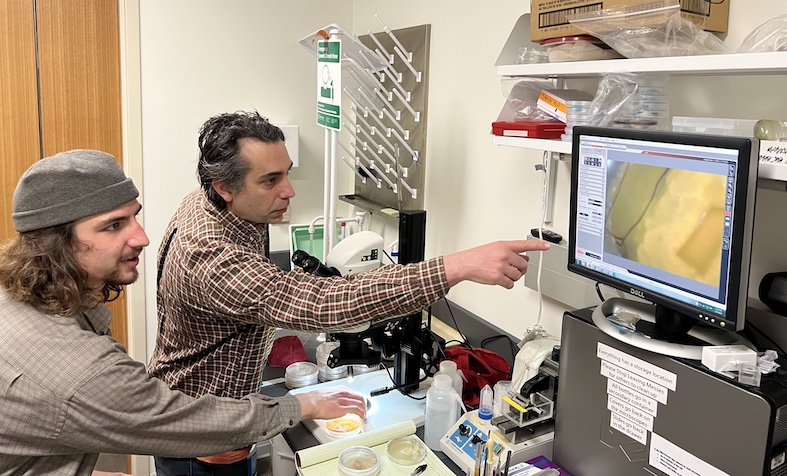Interdisciplinary team investigates the impact of fungus on the microbiome in human-impacted soils.
PSM’s Dr Gregory Bonito, Dr Adam Brown, professor in MSU’s College of Art, Art History and Design, and their colleagues have teamed up to investigate how fungi and bacteria work together to pull metals from soils
Truly interdisciplinary research presents challenges that few are willing to face. As science becomes more reductive and research more specialized, finding ways to overlap research and collaborate on projects with other disciplines requires more effort. PSM’s Dr Gregory Bonito, Dr Adam Brown, professor in MSU’s College of Art, Art History and Design, and their colleagues have teamed up to investigate how fungi and bacteria work together to pull metals from soils, and what ultimately becomes of those metals. Bonito, Brown and colleagues are supported by NSF’s Understanding the Rules of Life program, which supports convergent research to understand the interactions among organismal, environmental, social, and human-engineered systems.






 Print
Print Email
Email




